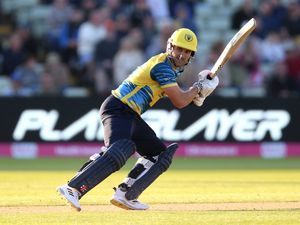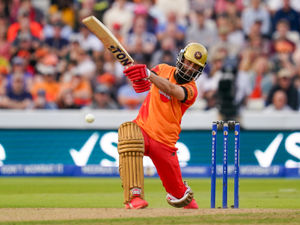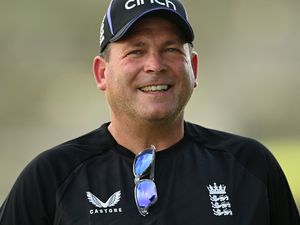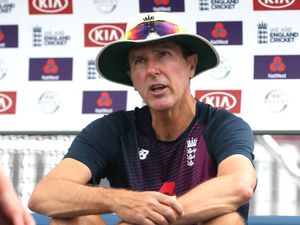ECB and KP Snacks warned over junk food ads targeting young Midlands cricket fans
The Advertising Standards Authority has banned two adverts for The Hundred cricket tournament promoting crisps and toffee popcorn to under-16s.
The UK’s ad watchdog has warned the England and Wales Cricket Board (ECB) and its sponsor KP Snacks about directing junk food promotions at children after banning two adverts for The Hundred featuring crisps and toffee popcorn.
The first ad, an email offering free bats and balls sent by the ECB to people on its database who had bought an under-16 ticket or indicated they had children in their household, featured a bright, colourful cartoon-style image of cricket players accompanied by logos for The Hundred and KP Snacks brand McCoy’s crisps.
The second ad, a paid-for post on Butterkist UK’s Instagram account, featured a pack shot of KP Snacks’ Butterkist Crunchy Toffee Popcorn alongside an image of a cricket bat and ball and a caption reading: “Win tickets to watch a sweet cricket game with @BirminghamPhoenix in Birmingham this summer [...] To enter follow us, like this post and tag the person you’d like to attend with. We couldn’t have chosen a team more popping.”
The Advertising Standards Authority (ASA) received two complaints from Sustain’s Children’s Food Campaign and Food Active that the ads were for products that were high in fat, salt or sugar (HFSS) and directed at children.
The ECB and KP Snacks confirmed that the products featured in the ads were considered HFSS in accordance with the Department of Health Nutrient Profiling Model.
They said that future marketing communications for HFSS products would not be directed at those under the age of 16.
The ASA said it welcomed the ECB’s and KP Snacks’ assurance that future marketing communications involving HFSS products would not be sent via email to people under the age of 16.
However, it noted that the ad for free bats and balls, which “featured exclusively HFSS products”, had been sent to 326 recipients under the age of 16.
It ruled that the two ads must not appear again, adding: “We told the ECB and KP Snacks to take reasonable steps in future to ensure that HFSS product ads were not directed at children through the selection of media or the context in which they appeared.”
The ruling follows controversy around the ECB’s decision to let KP Snacks sponsor The Hundred, the tournament designed to encourage young people to play the game.
Former head of NHS England Simon Stevens said at the time of its announcement in 2019 that the deal with the maker of Skips, Hula Hoops and Butterkist would undermine the fight against childhood obesity by persuading children to eat what he described as junk food.
A spokesman for The Hundred said: “We are sorry that due to an internal error an email promoting a giveaway of free cricket bats and balls was sent to a number of under 16s as well as the adults it was intended to be sent to.
“While the email contained a logo of one of our partner’s brands, applicants were not required or encouraged to buy any products in order to apply for the bat and ball and the purpose of the competition was to get more people active. We are putting in place additional systems to ensure it does not happen again.”
KP Snacks said: “At KP Snacks we recognise that as a responsible food manufacturer we have an important role to play in helping people make informed choices and enjoy our products responsibly.
“Our partnership with The Hundred enables us to introduce the game to new audiences and the Everyone In campaign is based around inspiring more people to get active through the power of cricket, whether that be through free kit and equipment, access to inspirational matches or exciting challenges.
“We welcome today’s ASA ruling and we will be working closely with the ECB to take on board the recommendations.”
Children’s Food Campaign co-ordinator Barbara Crowther said: “KP Snacks and the ECB have been caught out this time. We’re glad the ASA has told them very clearly to be more responsible in ensuring their marketing does not target children in future.
“However, it’s taken seven months to reach this verdict, which didn’t stop any junk food advertising at the time of the tournament, whilst neither body is facing any penalties or fines for breaking the rules.
“This is why we urgently need the more powerful new food and drink advertising restrictions contained in the Health and Social Care Bill. We are also calling on Government to go further and kick junk food sponsorship out of sport altogether – our research shows nine in 10 parents think these partnerships are inappropriate.
“This case clearly shows that simply asking sports organisations to be responsible in their commercial partnerships is not working, and there needs to be a level playing field for all, and for our children’s health.”





